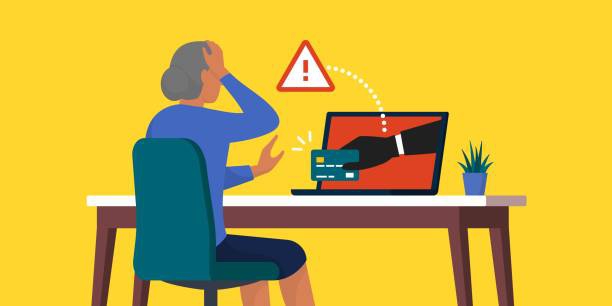Posted On: March 5, 2025 by First Community Bank and Trust in: Community Banking Community Banking Advocacy Community Events Community News General

This blog post was published by Jean Chatzky from SavvyMoney, with reporting by Casandra Andrews.
Follow these fraud prevention tips to help protect seniors from losing their savings.
It seems like scammers never sleep. Criminals are constantly coming up with creative ways to steal money from unsuspecting people, especially older Americans. Each year, millions of elderly adults in the United States fall victim to financial frauds, suffering $3 billion or more in losses, according to the FBI.
A recent report from the Federal Trade Commission found that older adults (those age 60 and up) were less likely than younger adults, age 20 to 59, to report losing money to fraud, but these older adults reported much higher individual dollar losses. Those 80 and older reported losing the most money to scams, with a median individual loss of about $1,600, the FTC reported.
As people live longer, elder fraud will continue to be a problem, though likely an underreported one. Older Americans may not want to report fraud for several reasons: they might not know how, or they may be too embarrassed at being duped out of their money. They could also be concerned that if their families find out about the scam, they may pressure them to hand over the reins of their financial affairs.
Here are some common elder fraud schemes, according to the FBI and FTC, and how to help guard against them:
Grandparent Scam
Criminals pretend to be a relative, usually a child or grandchild, and often claim to need money for a health emergency. In this scam, the ‘relative’ says they are going to send a friend by your home to collect the money. They may also ask that money be wire-transferred to someone you don’t know.
What to do: Resist the urge to immediately help. Never give or send money, jewelry, gift cards, checks, or wire transfers to people you don’t know. Call another relative to confirm the situation.
Tech Support Scam
Through email or by phone, criminals pose as technology support staff and offer to fix computer issues that don’t really exist. Sometimes they want to install anti-virus software as a way to gain remote access to your electronic devices and personal information.
What to do: Hang up on scammers if they call. Always be careful of what you download. Never open an email attachment from someone you don’t know, or weren’t expecting. Be wary of email attachments forwarded to you. Make sure your antivirus and security software and malware protections are up to date.
Government Impersonation Scam
Criminals pose as government employees, sometimes from the IRS or Social Security administration, and threaten to arrest or prosecute you unless you agree to provide a payment.
What to do: Government agencies won’t call you and ask for personal information over the phone such as your Social Security or bank account/credit card numbers. Do not give this information out. Ask the person to send the request through regular mail. Chances are, you won’t hear from them again.
Sweepstakes, Charity and Lottery Scams
In this update of the Nigerian prince scam, con artists falsely claim you won a foreign lottery or sweepstakes, which they can send to you for a fee. Criminals also claim to work for real charitable organizations to gain someone’s trust before asking for a donation that goes in their pocket instead.
What to do: If something seems too good to be true, it probably is. Hang up on these fraudsters if they call and/or delete their emails.
TV, Radio and Phone Scams
Criminals target potential victims using false advertisements about real services, such as reverse mortgages, credit repair and extended auto warranty offers. They also may call to say you’ve won a free cruise and ask you to pay the taxes and fees in advance using a credit card over the phone.
What to do: If they call you, simply hang up. Do not give out personal information, such as bank accounts or credit card numbers over the phone. If they call on your cell phone, you can block the number.
How to Report Elder Fraud
If you or someone you know thinks they have been a victim of elder fraud, contact your local FBI office. You can also file a complaint with the FBI’s Internet Crime Complaint Center.
About First Community Bank and Trust
First Community Bank and Trust is a privately-owned bank. Established in 1916 First Community Bank and Trust has been serving Beecher, IL, Peotone, IL and the surrounding communities for over 109 years. Our commitment to providing the best banking products and services is matched only by our outstanding customer service. We offer traditional community banking services, including mortgage, consumer, and commercial lending, as well as state of the art electronic banking services.
Press Contact:
Steve Koehn, Senior Vice President
First Community Bank and Trust
(708) 946-2246
###



0 comments